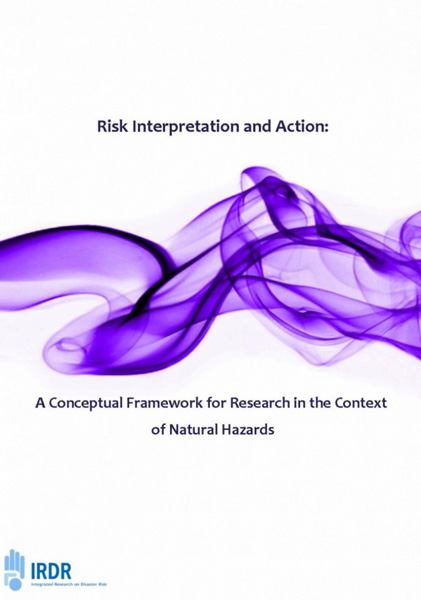Our emphasis in this report is on the contributions that can be made to integrated risk analysis and risk reduction through the study of human behaviour and decision-making. Our aim is to provide an integrated perspective on research on risk and decision-making and offer pointers to how this can be applied to natural hazards, and outline implications for practice. This will be based on a critical overview of research and theory on the relationships between how people interpret risk and the decisions they make as a consequence of such interpretations.
Our main focus will be on clarifying the key concepts and theoretical assumptions concerning the processes underlying interpretation of risk and decision-making under uncertainty so as to make these more accessible to a range of disciplines and to practitioners in the field of natural hazards. We thus hope to facilitate integrated research and its application through offering a ‘conceptual tool-kit’ more critically to address a range of questions including, but not limited to:
- Why do people seem more concerned about some risks than others?
- What (and who) has the most influence on their levels of concern?
- How do people’s assessments of risk influence their decisions to take measures to prevent or mitigate the risk to themselves and/or others?
- How should risk information be communicated and by whom?
- What makes some communicators and/or risk managers more trusted than others?
